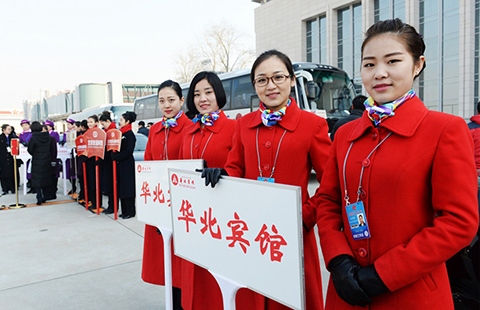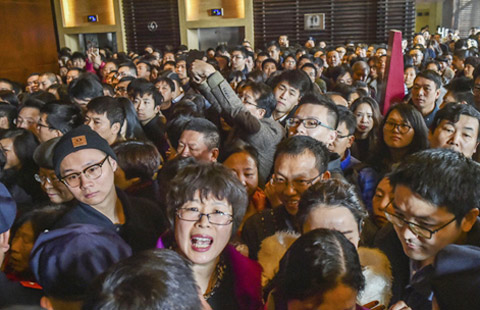

Japan's consumer-facing industries have reported sluggish growth in China over the past two years, with the ongoing islands dispatch compounding the situation.
The cancellation of group travel to Tokyo and Osaka, and the renaming of the Japanese-sponsored marathon games, are just two examples that point to a deeper crisis Japan has with its neighbor, not only politically, but economically.
Appealing to Chinese customers has become a strategic imperative, if not a matter of survival, for Japanese companies as their country's population ages and consumption falls. But data show a majority of firms fail to grab the formula for success in China, and their prospects seem gloomy.
Japanese vendors occupy a low single-digit percentage of China's white goods market. The share of Panasonic Corp in home appliances dropped steadily from 4.2 percent in 2009 to 4 percent by the end of 2011, according to Euromonitor International, a market research firm. Sony Corp only accounted for 1 percent of the pie in terms of consumer electronics in 2011, dropping 20 percent from the previous year.
Recent data from Beijing-based China Market Monitor Co Ltd, suggests this trend has accelerated in the past two months. In the TV set segment, Sharp Corp witnessed a steep drop from 8.8 percent in July to 4.7 percent by the middle of September. Sony slid 25 percentage points to 4.4 percent. Panasonic secured less than 1 percent.
Last year was a nightmare for Japanese electronics giants as they suffered severe losses. Sony flagged a record $6.4 billion annual net loss, doubling its earlier forecast and giving it a fourth straight year of red ink.
Similarly, Sharp, known for its liquid crystal display screen, also increased its full-year net loss forecast to $4.7 billion from $3.6 billion.
One reason Japanese white-goods makers are losing out to their competitors, notably Chinese counterparts, is that the Chinese government has introduced some financial incentives to encourage energy-saving products and bolster the growth of local brands, but the plan has a limited effect in boosting sales of foreign brands, said Xie Jiyong, an analyst with Capital Securities Corp in Shanghai.
The other factor hurting Japanese companies is that most Japanese brands use equipment manufacturers in China, said Xu Feifei, brand strategy director of Labbrand Enterprise Management Consulting in Shanghai.
"The quality differences become much less visible, and as Japanese brands are usually priced higher than Chinese brands, it comes as no surprise consumers opt for the local ones," Xu said.
On the vehicle front, sales of Japanese cars decreased by 2 percent year-on-year in August, according to statistics provided by China Association of Automobile Manufacturers. German carmakers retained their robust growth and for the first time superseded Japan to take the first spot in China's passenger car market.
Japanese vendors were on a downward track since July as industry heavyweights reported differing levels of decline. Sales of Toyota plummeted by 5 percent year-on-year and Nissan fell by 2 percent. Joint venture GAC Honda plunged by 20.5 percent.
The rise of the Chinese middle class and fierce business competition, has put a premium on getting product development right. But this has not been a strong point of the Japanese, who have tended to simply replicate the approach they would take in their own country.
"Simply put, with intensified competition, Japanese manufacturers failed to gain a foothold in the emerging niche market while losing their edge in the traditional segments," said Wei Houmin from the association. "They lag behind Volkswagen and General Motors in launching new products, and they lack exciting technology breakthroughs."
German companies, however, are aggressively expanding to upward and downward segments, said Xu. "For instance, Audi, BMW and Mercedes-Benz have introduced their respective car models for entry-level consumers. A number of Japanese branded cars have been recalled in recent years, clouding the reputation of their quality."
Contact the writer at hewei@chinadaily.com.cn













